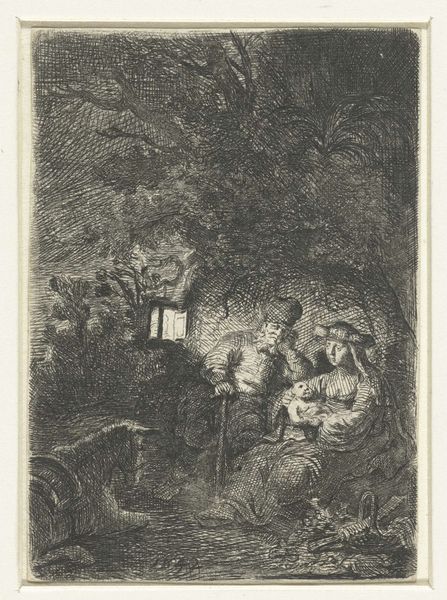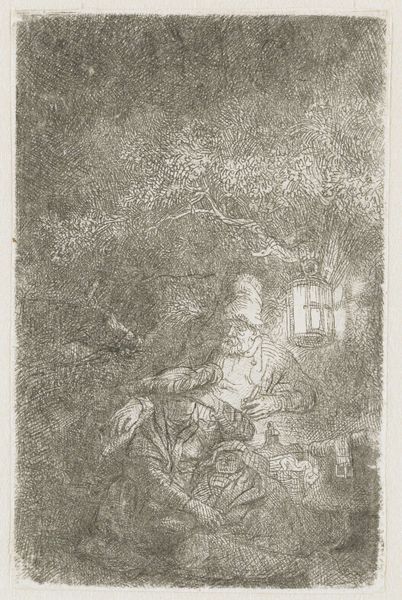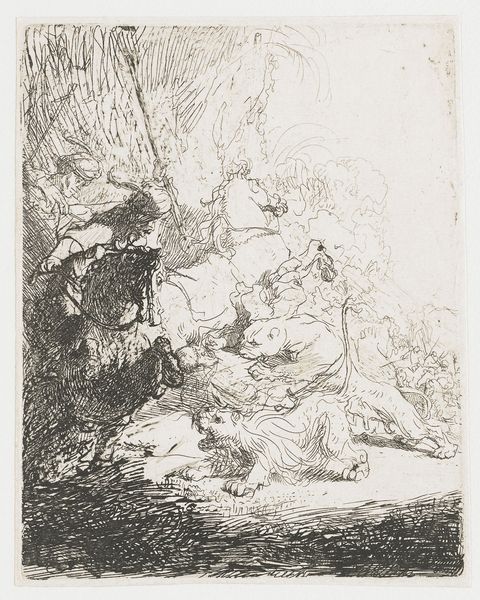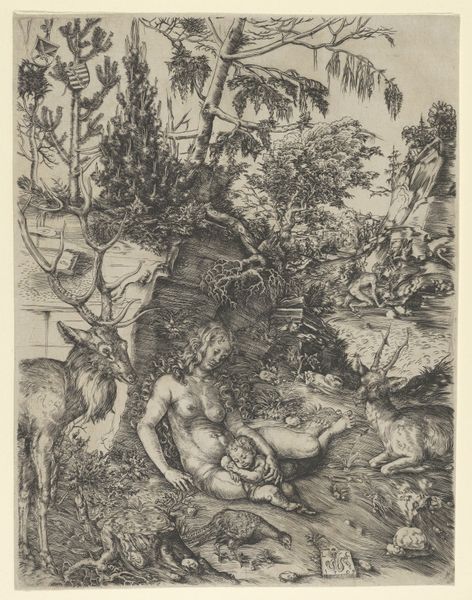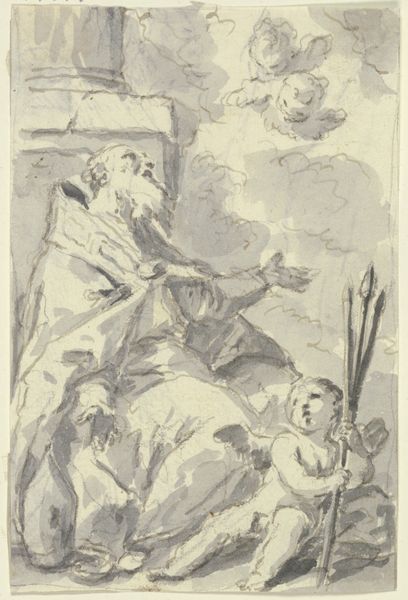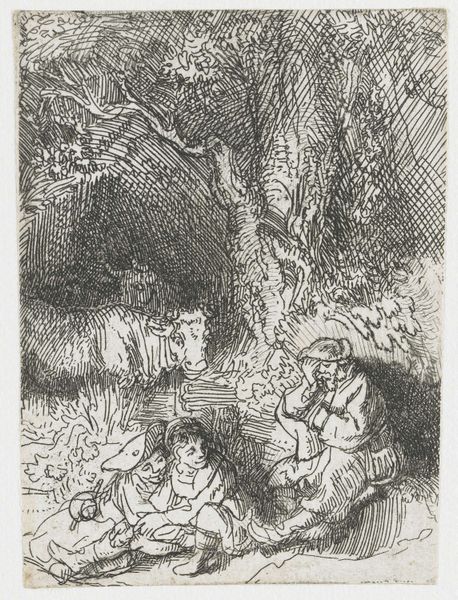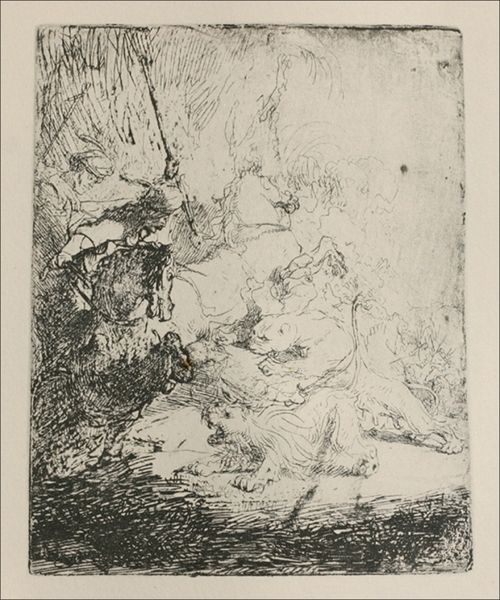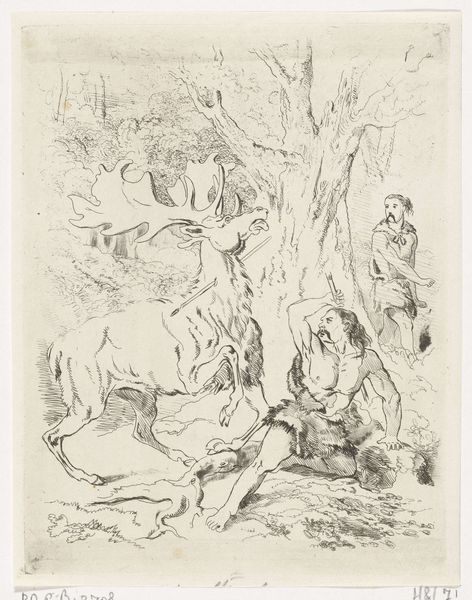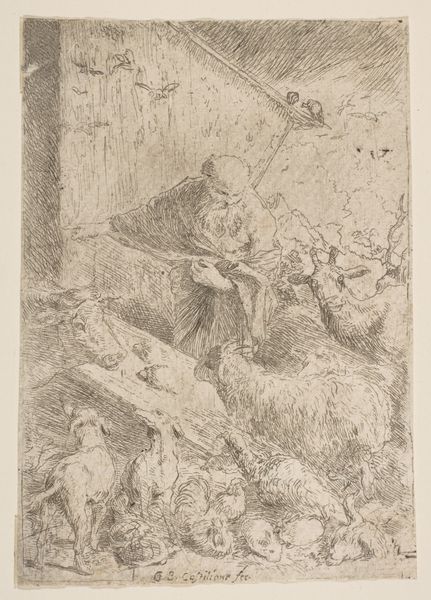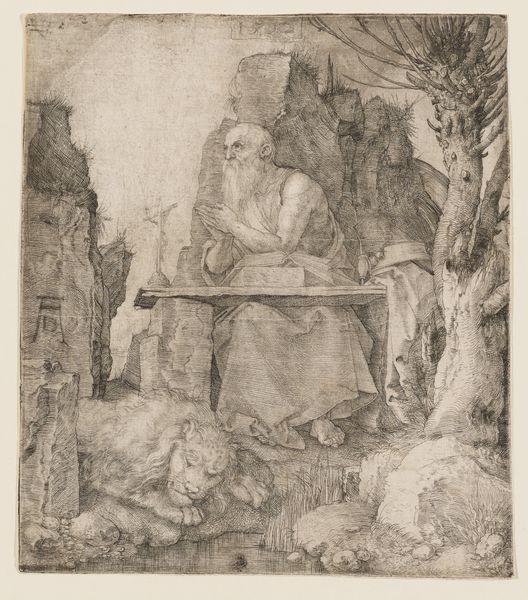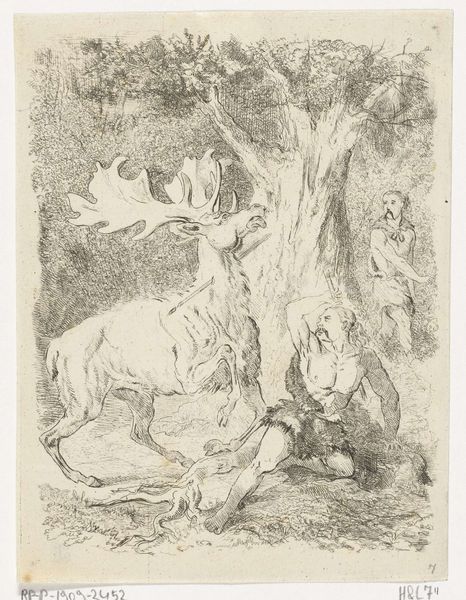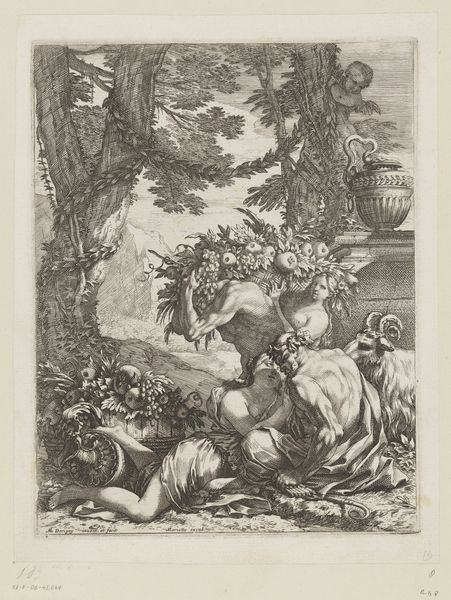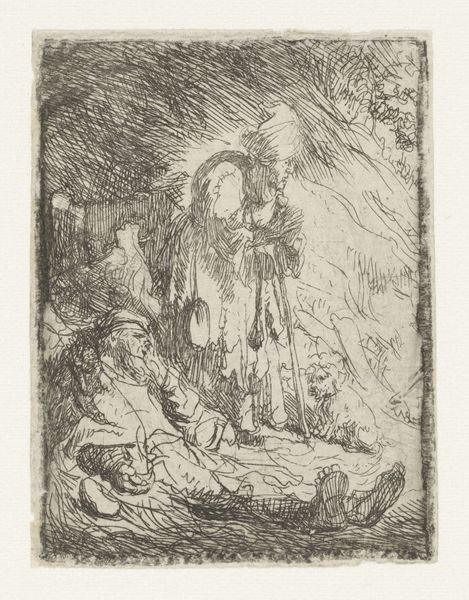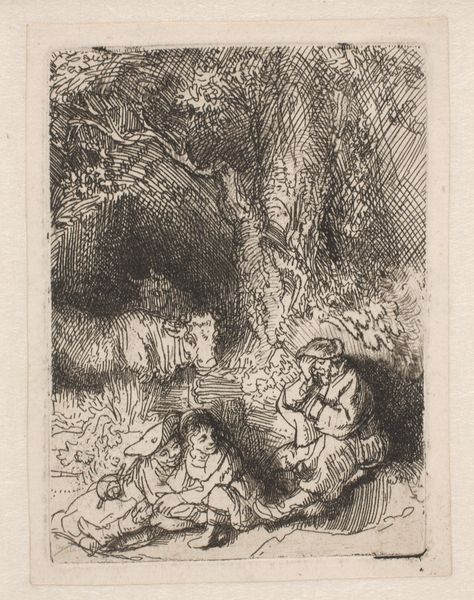
drawing, etching, ink
#
drawing
#
narrative-art
#
baroque
#
pen drawing
#
dutch-golden-age
#
pen sketch
#
etching
#
pencil sketch
#
landscape
#
figuration
#
personal sketchbook
#
ink
#
sketchwork
#
ink drawing experimentation
#
pen-ink sketch
#
pen work
#
sketchbook drawing
#
sketchbook art
Dimensions: height 212 mm, width 164 mm
Copyright: Rijks Museum: Open Domain
Rembrandt van Rijn made this etching, The Rest on the Flight into Egypt, using metal, acid, and ink. The image is created by incising lines onto a metal plate, which is then submerged in acid. The acid bites into the exposed lines, creating grooves that hold ink. The plate is then wiped clean, leaving ink only in the etched lines, and finally pressed onto paper to produce the print. The image is characterized by its dense network of lines, which create a sense of depth and shadow. This technique allowed Rembrandt to achieve a remarkable level of detail and texture, evident in the foliage, the figures' clothing, and the donkey. Etching allowed for the mass production of images, making art more accessible to a wider audience and changing the art market and consumption. Considering the material and processes behind this print allows us to appreciate the artist's skill and ingenuity, reminding us of the labor that goes into creating art.
Comments
rijksmuseum over 2 years ago
⋮
The Holy Family is here resting on their flight into Egypt. The Virgin feeds the baby while Joseph holds up the little bowl from which she spoons the food. This is Rembrandt’s second etching, and he grapples with volume and depth. While he separates light from dark (with a tangle of lines), once in shadow the figures are difficult to distinguish from the background.
Join the conversation
Join millions of artists and users on Artera today and experience the ultimate creative platform.
